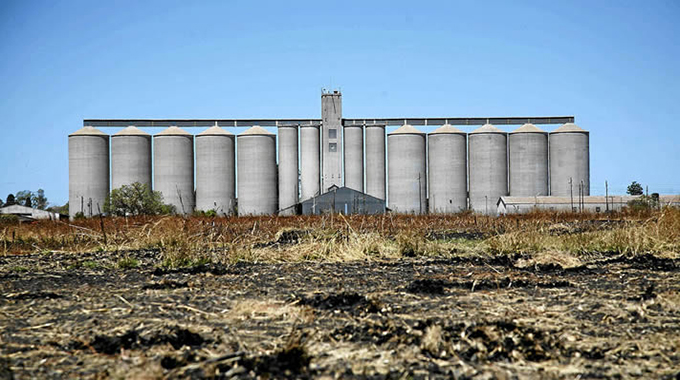AI can result in a more resilient and sustainable food system

Jacqueline Ntaka
FOOD security in Africa and Zimbabwe is threatened by recurrent droughts caused by climate change. The COVID-19 pandemic worsened the situation, disrupting food supply chains and livelihoods.
While the Grain Marketing Board (GMB) has announced that it has enough stocks of grain in its strategic reserves to feed the vulnerable households, this is not a long-term solution.
Zimbabwe needs to invest in building a more resilient and sustainable food system that can cope with the impacts of climate change and other shocks. Artificial intelligence (AI) can be a powerful tool to help achieve this goal.
AI is the use of machines and algorithms to perform tasks that normally require human intelligence, such as learning, reasoning, and decision making.
AI can be applied to various aspects of the food system, from production to consumption, to improve efficiency, productivity, quality, and safety.
AI can help farmers to optimise their inputs and outputs, such as seeds, fertilisers, water, and crops. For example, AI can analyse satellite imagery, weather data, and soil sensors to provide farmers with timely and accurate information on crop health, pest and disease detection, irrigation needs, and yield forecasts.
This can help farmers to reduce costs, increase yields, and adapt to changing conditions. Companies like Precision Agriculture for Development and FarmDrive are using AI to provide farmers with agronomic advice and financial services through mobile phones.
While AI is not a magic bullet, it can help improve the storage and distribution of food, reducing post-harvest losses and waste. One way it can do this is by monitoring the quality and quantity of food in storage facilities, such as silos and warehouses, and alert the authorities of any risks or anomalies. AI can also optimise the logistics and transportation of food, ensuring that the right amount of food reaches the right place at the right time. Companies like Zindi and Twiga Foods are using AI to connect farmers, traders, and retailers in efficient and transparent food markets.
Futhermore, AI can be used to enhance the nutrition and safety of food, improving public health and well-being. AI can analyse the nutritional content and composition of food, and provide recommendations for balanced and diverse diets.

Artificial intelligence
AI can also detect and prevent food contamination and fraud, ensuring that food meets the quality and safety standards. Companies like Brightseed and FoodID are using AI to discover new health benefits of plants and to verify the origin and integrity of food.
As already stated, AI is not a magic bullet that can solve all the problems of food security in Zimbabwe. It also comes with challenges and risks, such as ethical, social, and environmental implications, data availability and quality, and human and institutional capacity. Therefore, Zimbabwe needs to adopt a holistic and inclusive approach to harness the potential of AI for food security, involving all the stakeholders in the food system, such as farmers, consumers, researchers, policymakers, and private sector.
Zimbabwe also needs to invest in the infrastructure, education, and regulation that can enable the development and deployment of AI for food security, while ensuring its accountability, transparency, and fairness.
AI can be a catalyst for innovation and transformation in the food system, creating new opportunities and solutions for food security in Zimbabwe. By embracing AI, Zimbabwe can build a more resilient and sustainable food system that can feed its people today and in the future.
Jacqueline Ntaka is the CEO of Mviyo Technologies, a local tech company that provides custom software development, mobile applications and data analytics solutions.
She can be contacted on [email protected].










Comments